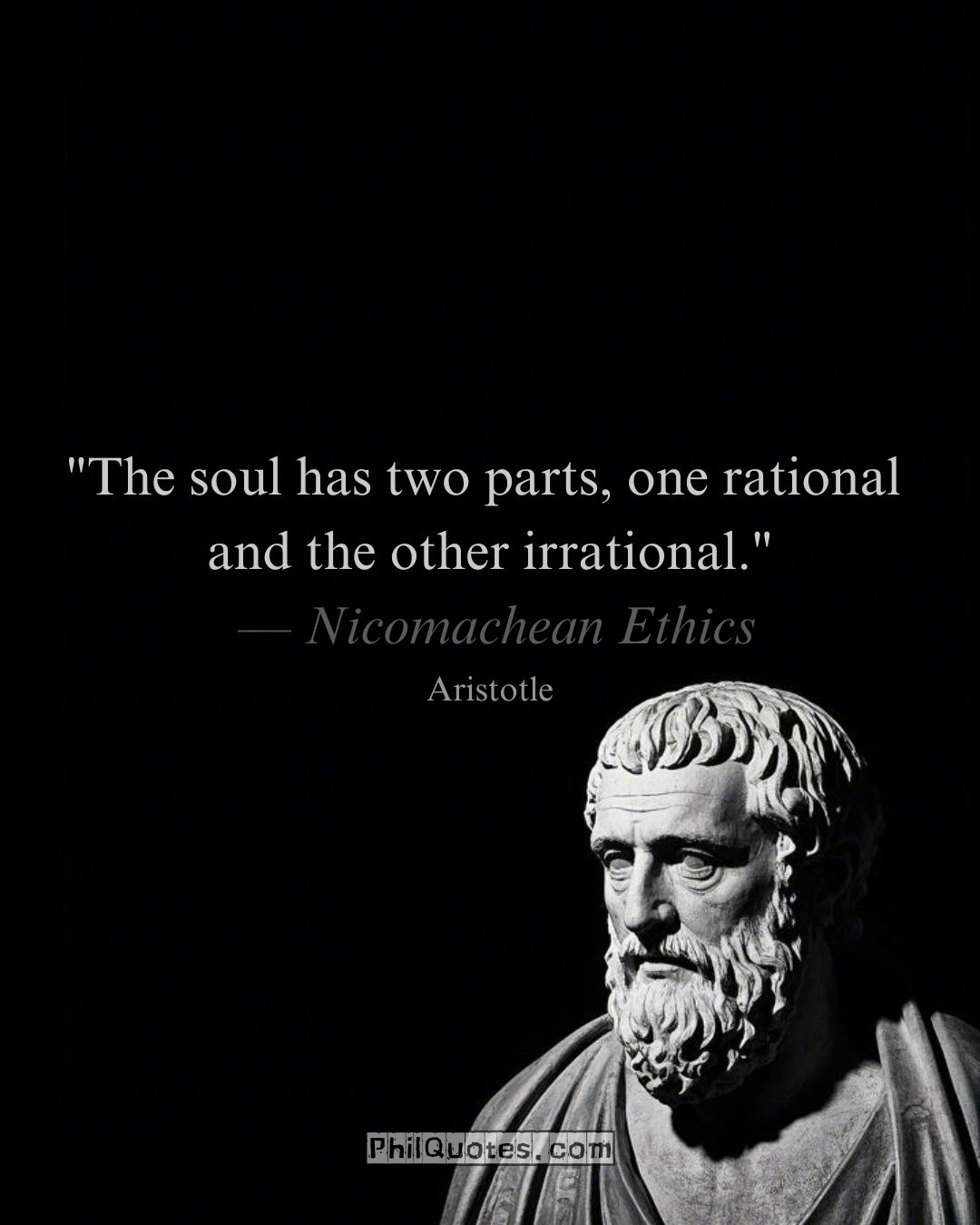
“The soul has two parts, one rational and the other irrational.”
— Aristotle, Nicomachean Ethics, Book I, Chapter 13
Explanation:
Aristotle’s dualistic soul theory frames human nature as an ethical ecosystem — the rational mind (logical analysis, moral judgment) must guide the irrational passions (emotions, instincts). Like a rider directing a powerful horse, true virtue emerges when reason harmonizes with desire, transforming raw impulses into ethical momentum.
Real-World Connection:
① Cognitive Behavioral Therapy →
You identify anxious thoughts (irrational) → challenge them with evidence (rational override) → reduce panic attacks (soul harmony) → prove Aristotelian psychology in modern mental health.
② Athlete’s Discipline →
A runner craves junk food (appetitive soul) → follows nutrition plans (rational governance) → breaks marathon records (embodied virtue) → show mind-body synergy as excellence.
③ The Hidden Algorithm →
- Irrational Fuel: Passion energizes art, love, courage
- Rational Navigation: Logic prevents recklessness, greed, hatred
- Virtuous Loop: Emotion inspires goals → reason maps paths → achievement feeds motivation